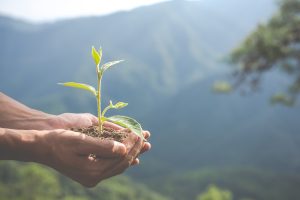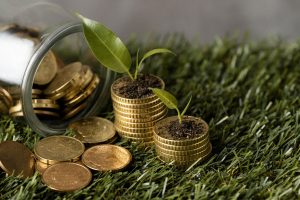On November 28th 2022, by means of Decree 779/2022, was approved the regulation to the Law No 25,916 of Integral Household Waste Management. This regulation defines houseold wastes as “those elements, objects or substances, which are generated and discarded as a consequence of domestic activities carried out in urban and rural areas, including those which can be assimilated in their characteristics to those whose origin are commercial, institutional, assistance and industrial“.
In order to proceed with the integral management of these wastes, it provides the following hierarchy of options to be respected: prevention or minimization, reuse, recovery, treatment and as a last step, proceed to their final disposal. It also indicates that this hierarchy of options can be altered if can be properly justified by the corresponding authority. Likewise, it indicates that a circular economy approach with social inclusion must be incorporated, this being understood as “a model that addresses production, distribution, consumption and recycling in a virtuous way, promoting the valorization and reincorporation of waste, strengthening the collection and recovery circuits as part of new productive circuits, promoting reverse and efficient logistics, avoiding the use of new natural resources and promoting energy savings, in order to reduce carbon footprint“. In addition, the regulation also orders the creation of a Registry of Workers on each jurisdiction, where workers regarding recovery of household waste with economic value must enroll.
In order to comply with the law authorities may establish complementary rules and waste management systems that shall observe the following guidelines:
- From cradle to cradle: carry out management with a focus on devising, designing and producing in such a way that the elements that make up products, goods and services can be sustainably recovered and valorized at all stages of their life cycle;
- Proximity: management shall be carried out in sites that are appropriate and as close as possible to the place where they were generated;
- Extended responsibility to the producer: the assignment of the objective responsibility for the integral management and its financing will be promoted to the producers who introduce for the first time in the market goods and products that after being consumed become household waste. Its objective is that producers progressively adapt to the obligations established, taking into account the life cycle of the good and/or product, and respect the hierarchy of options.
- Ecodesign: the systems of such management shall promote incentives for the systematic integration of environmental aspects in the design of goods and products, in order to improve environmental performance and reduce environmental externalities throughout their life cycle, in particular their duration and potential for recovery;
- Gradualness: the integral management systems shall be adapted rationally, temporally and gradually to the objectives and obligations set forth in this regulation;
- Use of best available management techniques and practices:the management of household waste shall use the best available techniques and practices, prioritizing the most efficient and advanced management alternative in a given context, including the particularities of the corresponding jurisdiction, the type of waste, its composition, among other factors; and demonstrating the practical, economic, social and environmental capacity to comply with the law objectives, and the hierarchy of options; and
- Traceability: The management systems used by the competent authorities must be self-sufficient, allowing them to have knowledge about stocks, generation flows, routes and amounts recovered and finally disposed of in a disaggregated manner for each stage.
The standard requires generators to separate and segregate waste in an adequate way to avoid accidents when handling waste. Likewise, it indicates that recoverable materials must be previously conditioned in such a way that when they are accumulated, they do not get wet or deteriorate each other. To this end, a “Unified Color Code for the Classification and Identification of Hazardous Waste Fractions” was established in order to “harmonize the technical and environmental criteria to be used in the different stages of the integral management of household waste. This is a strategic instrument that unifies the way in which each fraction of household waste is identified and segregated, promoting citizen culture in this area, and consequently facilitating the work of the waste recovery industry throughout the country ”. Through this, it proceeds to make a distinction of the materials through the use of the following colors: “Dry recoverable waste” with green signs, which must be conditioned in such a way as to avoid accidents when handled, and dry in order not to dampen or dirty other waste; “Garbage“, with black signs; The “Valorizable Organic Waste“, with a brown color; the “Plastics” with a yellow color; the “Papers and Cardboard“, with a blue color; the “Glass” with a white color; and, finally, the “Metals” with a gray color signage.
Finally, the regulation established the Ministry of Environment and Sustainable Development as the Authority of Application of the Integral Management of Household Waste Law , No. 25,916, which will have several competences, among them, to require the local jurisdictions the necessary information to formulate and agree on the policies regarding household waste management within the Federal Council of Environment (COFEMA); to prepare a georeferenced baseline of household waste management in the whole national territory; to promote environmental education programs, create programs that contemplate the extended responsibility of the producer for the life cycle of the products, particularly in the post-consumption stage, ensuring the integral management of waste; among others. Additionally, the enforcement authority will establish mechanisms to ensure traceability in the generation, collection, treatment and final disposal of household waste throughout the national territory.


